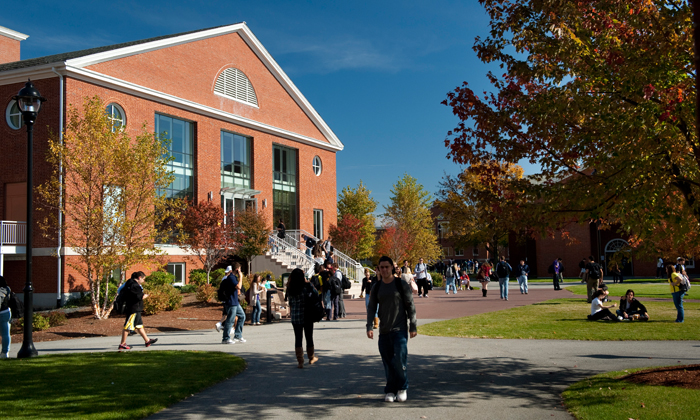
Faculty Members Rick Oches and David Szymanski and Senior Gregory Bucci Present at Geological Society of America Annual Meeting
Bentley faculty members Rick Oches and David Szymanski and senior Gregory Bucci are presenters at the 2011 annual meeting of the Geological Society of America, October 9 to 12 in Minneapolis, Minnesota. Approximately 6,000 scientists are expected to attend.
Rick Oches, associate professor of natural and applied sciences, will present “Preparing the Next Generation of Business Leaders to Confront Environmental Challenges,” a paper co-written with Bentley colleagues David Szymanski, assistant professor of natural and applied sciences, and P. Thompson (Thom) Davis, professor of natural and applied sciences. The research explores the need for scientific literacy among non-science students who will influence the direction of science and technology and provide support for innovation-based companies through roles in business, industry, nonprofits, government agencies and NGOs. It also provides an overview of Bentley’s core Earth and Environmental Sciences education goals for students, including a series of multidisciplinary summer workshops for faculty.
David Szymanski, assistant professor of natural and applied sciences, will present “Teaching Water Quality Through Technology-Enhanced Laboratory Modules in Undergraduate Business Education,” a paper co-written with Elva Wohlers, senior lecturer in natural and applied sciences at Bentley. The research explores the need to provide business students with the opportunity to integrate a scientific understanding of environmental issues into a business curriculum. It specifically highlights faculty collaborations at Bentley to develop laboratory-based modules that use advanced technology to apply basic science to real-world issues such as water quality.
Bentley senior Gregory Bucci will present “Engaging Undergraduate Students in Energy Policy Through Service-Learning,” a paper co-written with David Szymanski, assistant professor of natural and applied sciences, and fellow students Victoria Adams, Daniel Green and William Markow (Class of 2013). The research highlights the role of service-learning as a tool for non-science majors to identify connections among energy, the environment and the economy. It showcases a fourth-credit service-learning option for a course taught by Szymanski in which Bucci and student researchers teamed up with nonprofit Environmental and Energy Study Institute (EESI) in Washington, D.C., to survey the attitudes of New England small business owners on issues of energy use and efficiency. Findings were presented to federal policymakers.

